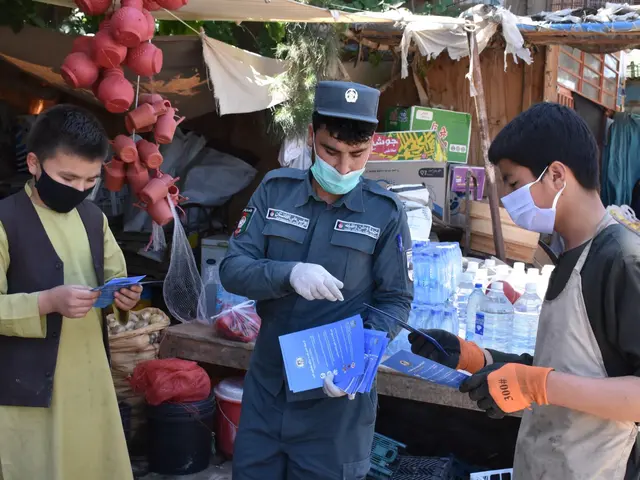"I have eaten what I possessed over the past some three months to survive the COVID-19," whispered Masooma, a housewife in Afghanistan's northern Mazar-i-Sharif city.
Describing COVID-19 as "an economy-eroding virus," the woman said, "COVID-19 forces people to stay at home and consume what you have earned."
Like other cities in Afghanistan, Mazar-i-Sharif has been locked down over the past several weeks and people are rarely allowed to go out.
To overcome the economic challenges, Masooma started doing embroidery at home and sold her products to neighbors and other villages.
"Since my husband can't go out to work due to COVID-19, I have opened the tailor shop at home to earn livelihood," said Masooma, a mother of six.
The spread of novel coronavirus in conflict-battered Afghanistan has added to the poverty of impoverished locals.
To contain the epidemic, the government, besides banning public gatherings and conferences, shutting down schools and universities, has also imposed daytime curfew on cities, urging people to stay at home.
The Muslim fasting month of Ramadan during which people observe fast from dawn to dusk coincided with the lockdown.
"Both COVID-19 and Ramadan have joined hands to multiply my poverty and the economic problems of other ordinary people," said Mohammad, another resident of Mazar-i-Sharif.
Mohammad, who was a daily wager before the COVID-19 outbreak in his country, told Xinhua that the fear of the virus and energy decrease in Ramadan have pushed poor families to the wall and made him "too weak to wake up."
The government of Afghanistan has announced packages of humanitarian assistance including distribution of naan, or flat bread, to help needy families across the country during the lockdown.
"No doubt, COVID-19 is a killing virus and we have to be cooperative with the government to comply with the rule and regulation imposed during quarantine period and stay at home to remain safe," Rohullah, a teacher of a private school, told Xinhua.
Since the outbreak of COVID-19 in February in Afghanistan, 6,053 positive cases have been confirmed, of which 153 have died and 745 others have recovered, according to health officials.
"COVID-19 have made many people jobless and caused economic problems for countless families. To escape from the danger, we have to stay at home to stay safe," said Rohullah.
 简体中文
简体中文

